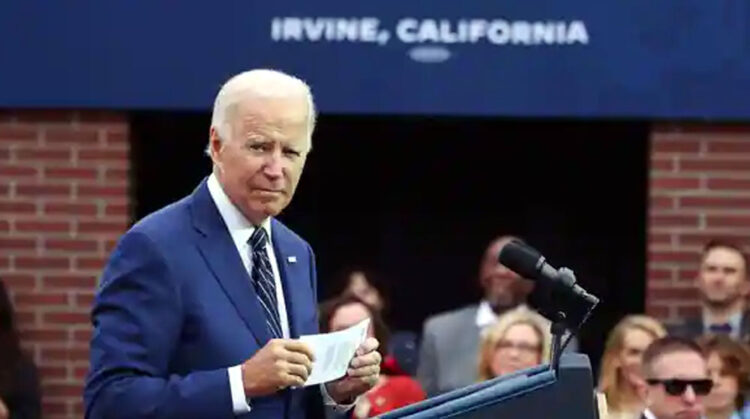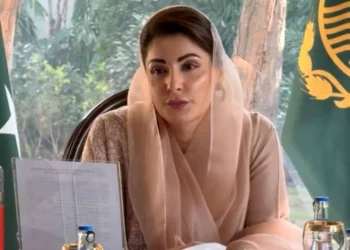Monigoring Desk
United States President Joe Biden has said that Pakistan may be “one of the most dangerous nations in the world” as the country has “nuclear weapons without any cohesion”, it was reported on Saturday.
The US president made the comments while addressing a Democratic congressional campaign committee reception on Thursday.
“And what I think is maybe one of the most dangerous nations in the world: Pakistan. Nuclear weapons without any cohesion,” Biden was quoted as saying in a transcript of the address, published on the White House’s website.
Biden’s remarks were made with regard to the changing geopolitical situation globally, as he highlighted that the world was changing rapidly, and countries were rethinking their alliances.
“And the truth of the matter is – I genuinely believe this – that the world is looking to us.
Not a joke. Even our enemies are looking to us to figure out how we figure this out, what we do,” he added.
Biden maintained that there was “a lot at stake” and that the US had the capacity to lead the world to a place it had never been to before.
“Did any of you ever think you’d have a Russian leader, since the Cuban Missile Crisis, threatening the use of tactical nuclear weapons that would – could only kill three, four thousand people and be limited to make a point?” he questioned.
“Did anybody think we’d be in a situation where China is trying to figure out its role relative to Russia and relative to India and relative to Pakistan?” the US president further added.
Biden claimed that he had spent “more time with [Chinese President] Xi Jinping than any head of state in the world”. He furthered that his Chinese counterpart was “a guy who understands what he wants but has an enormous, enormous array of problems”.
“How do we handle that? How do we handle that relative to what’s going on in Russia? And what I think is maybe one of the most dangerous nations in the world: Pakistan.
Nuclear weapons without any cohesion,” Biden said.
He added that there was “a lot going on”, but emphasised that there were “enormous opportunities for the United States to change the dynamic in the second quarter of the 21st century”.















